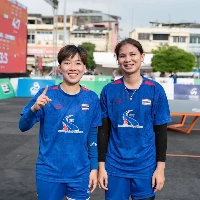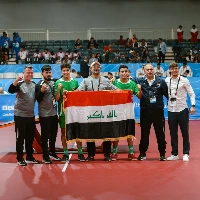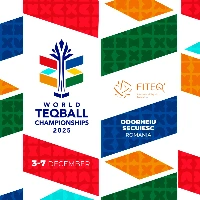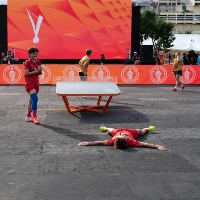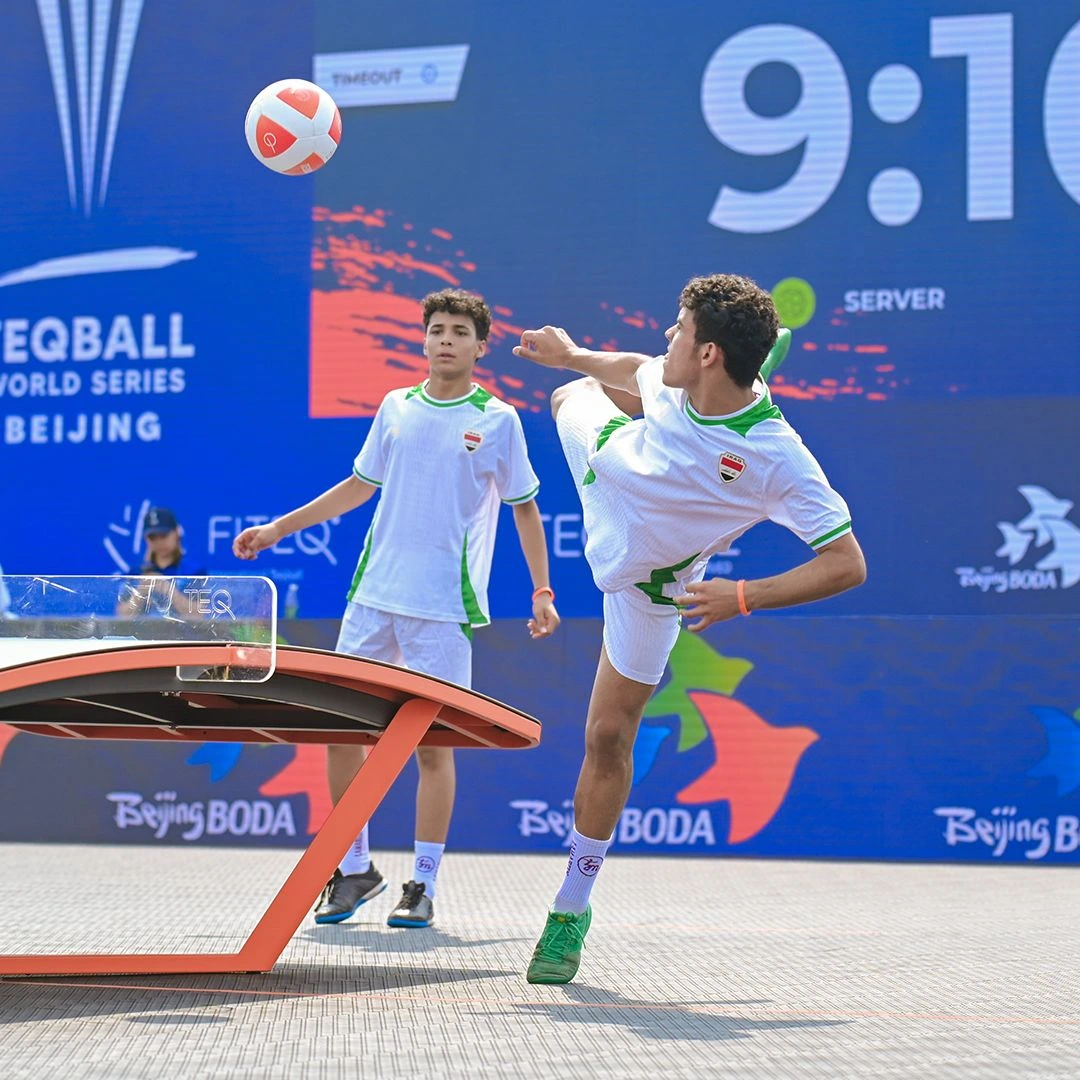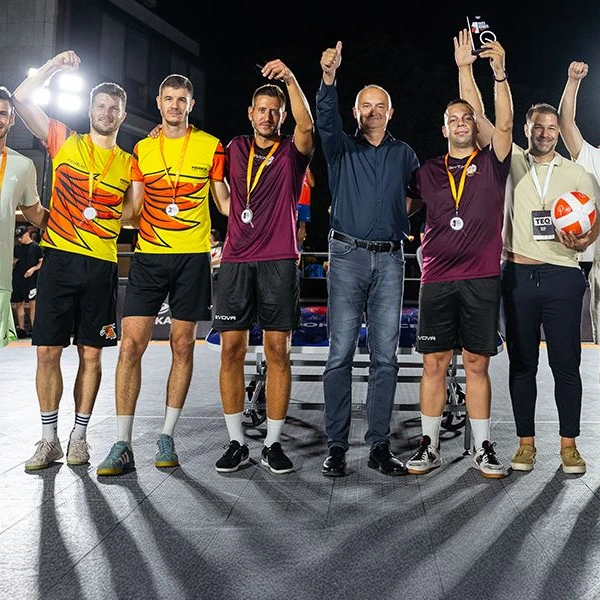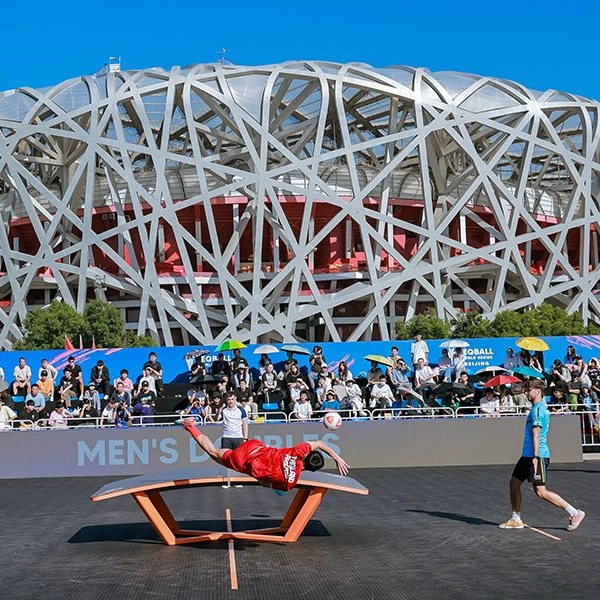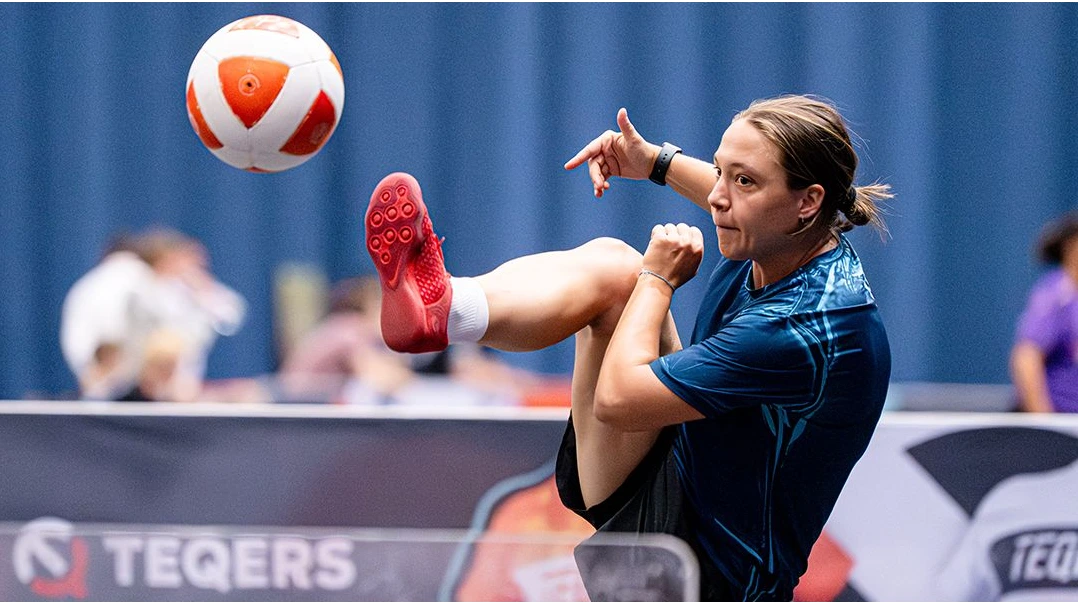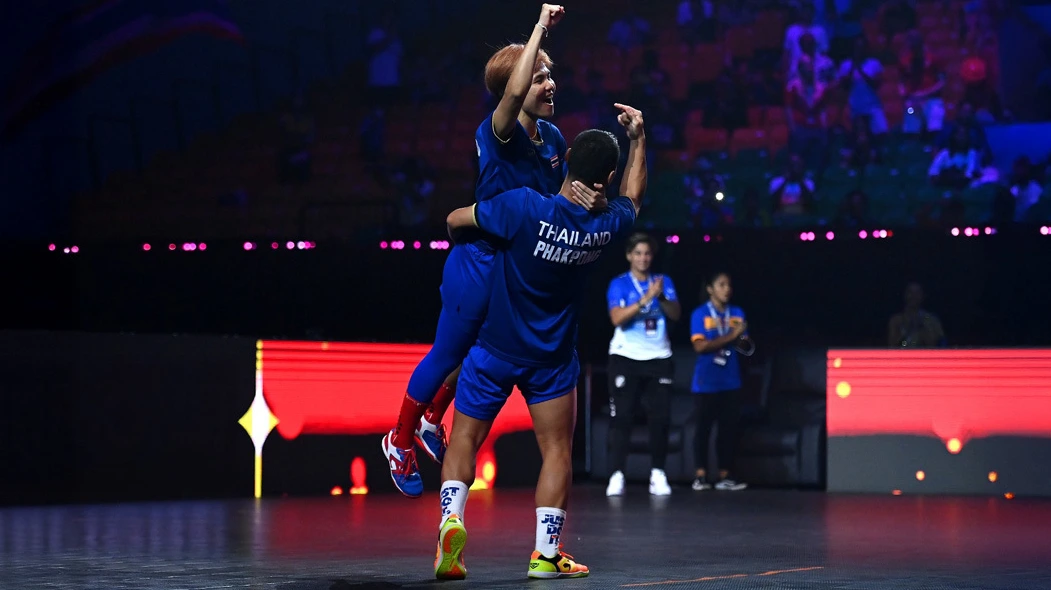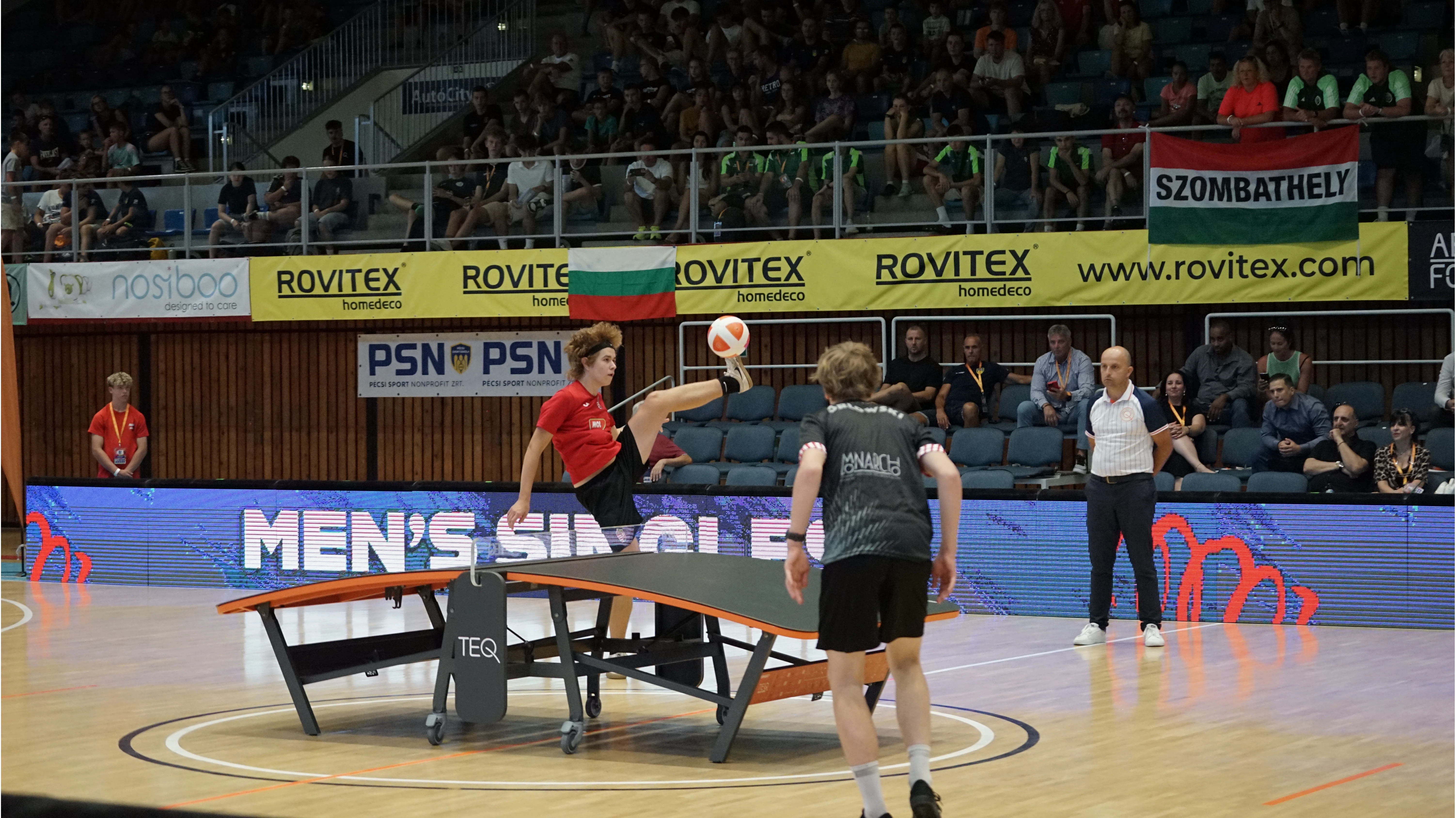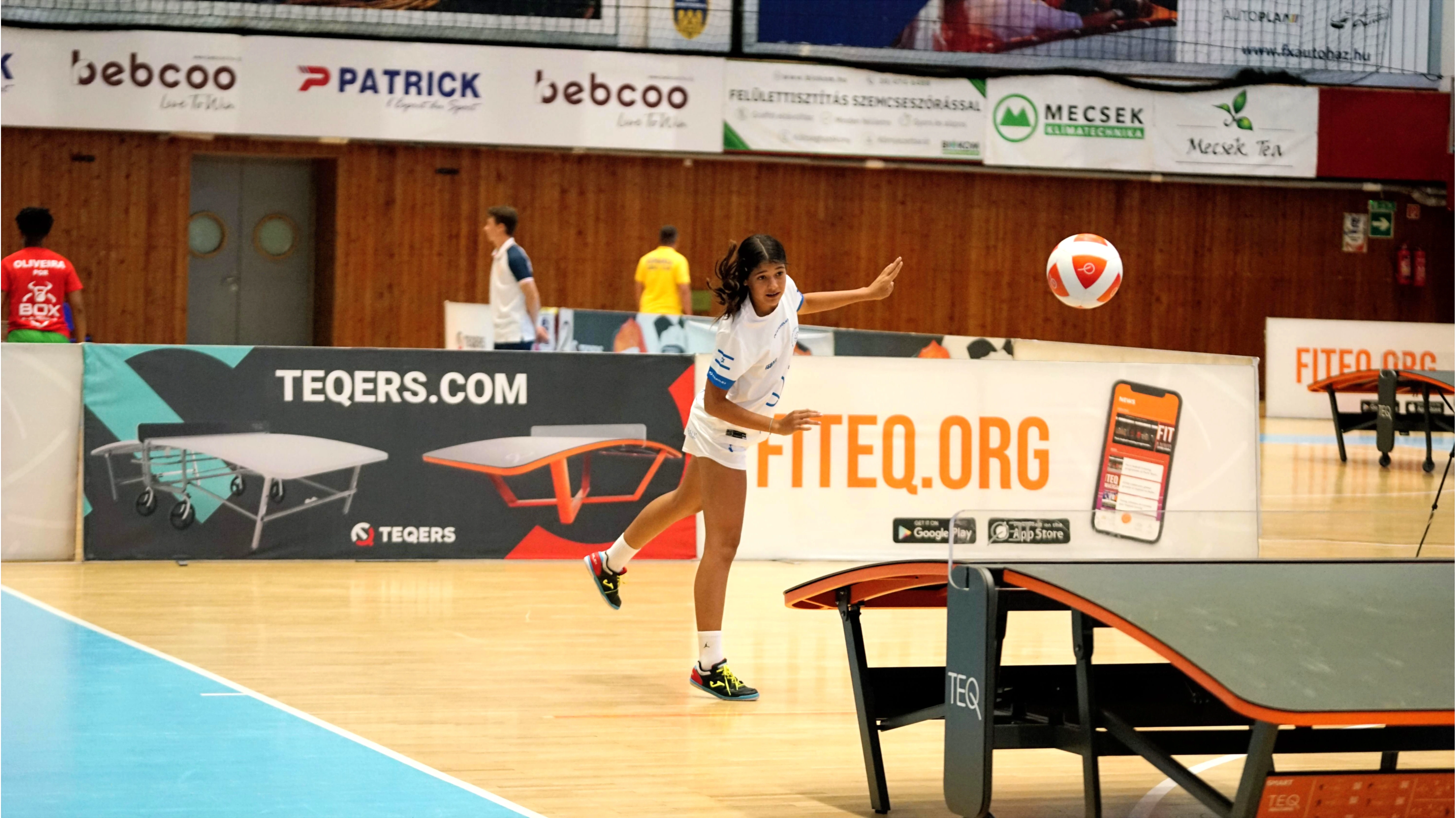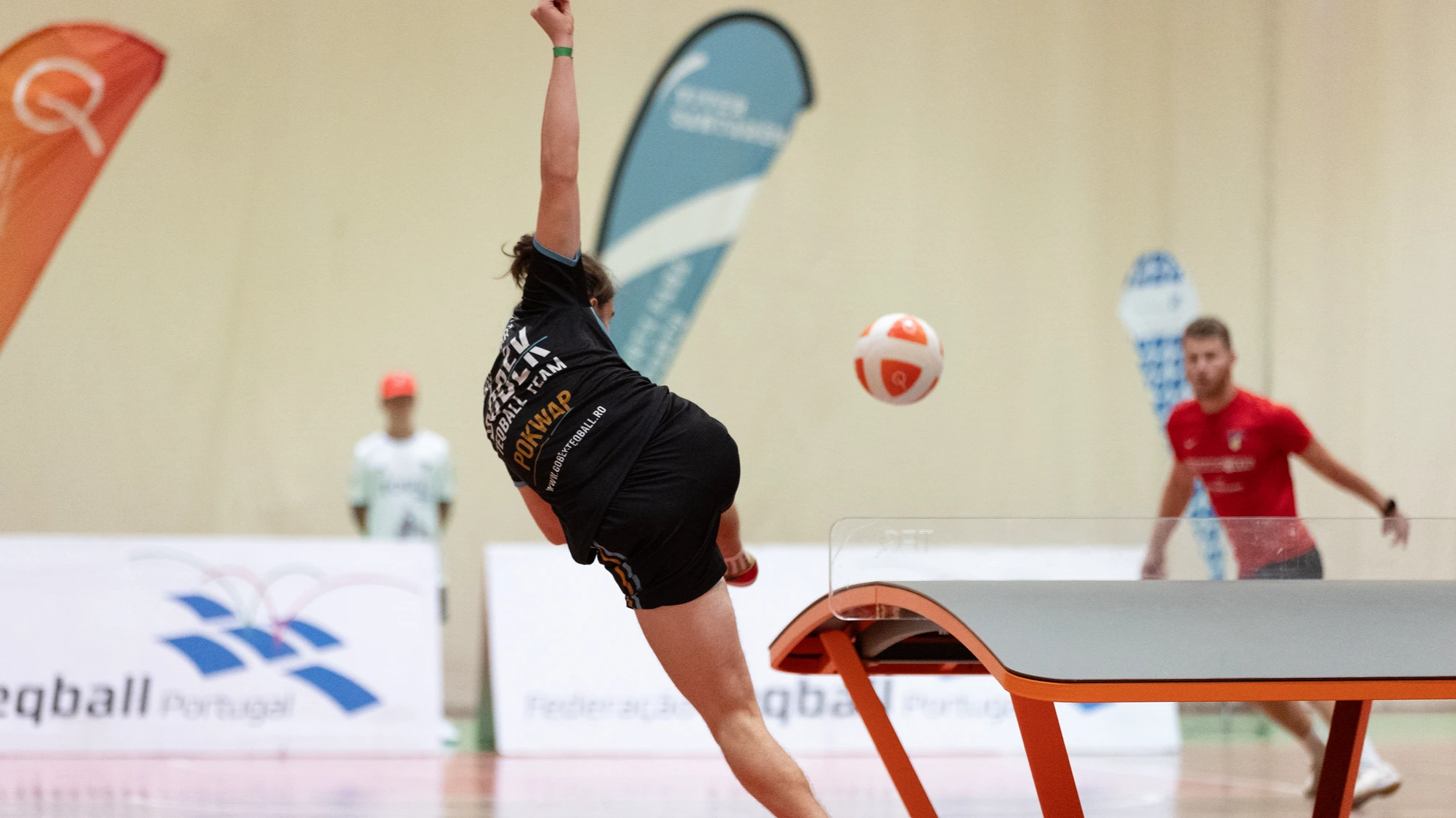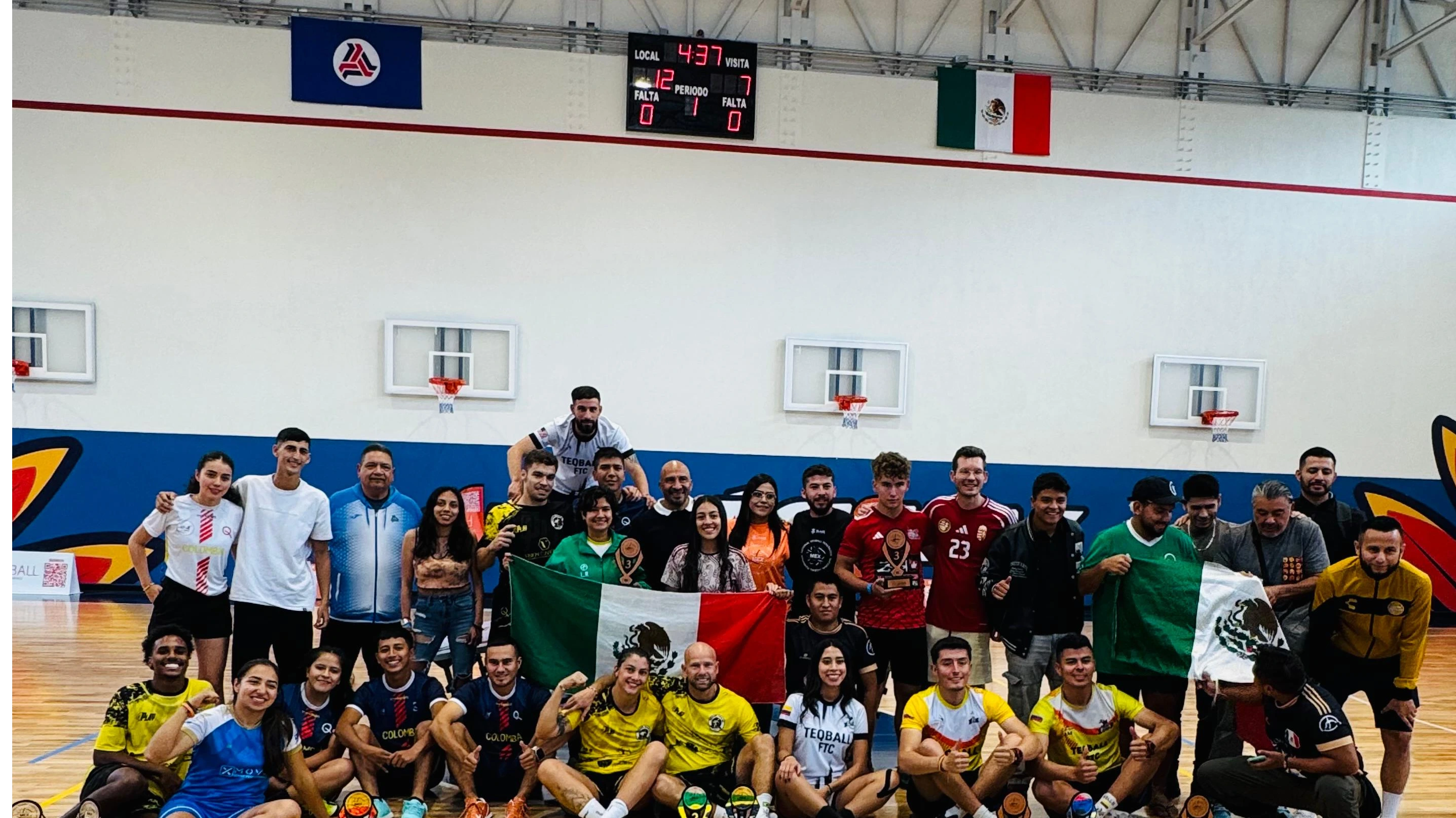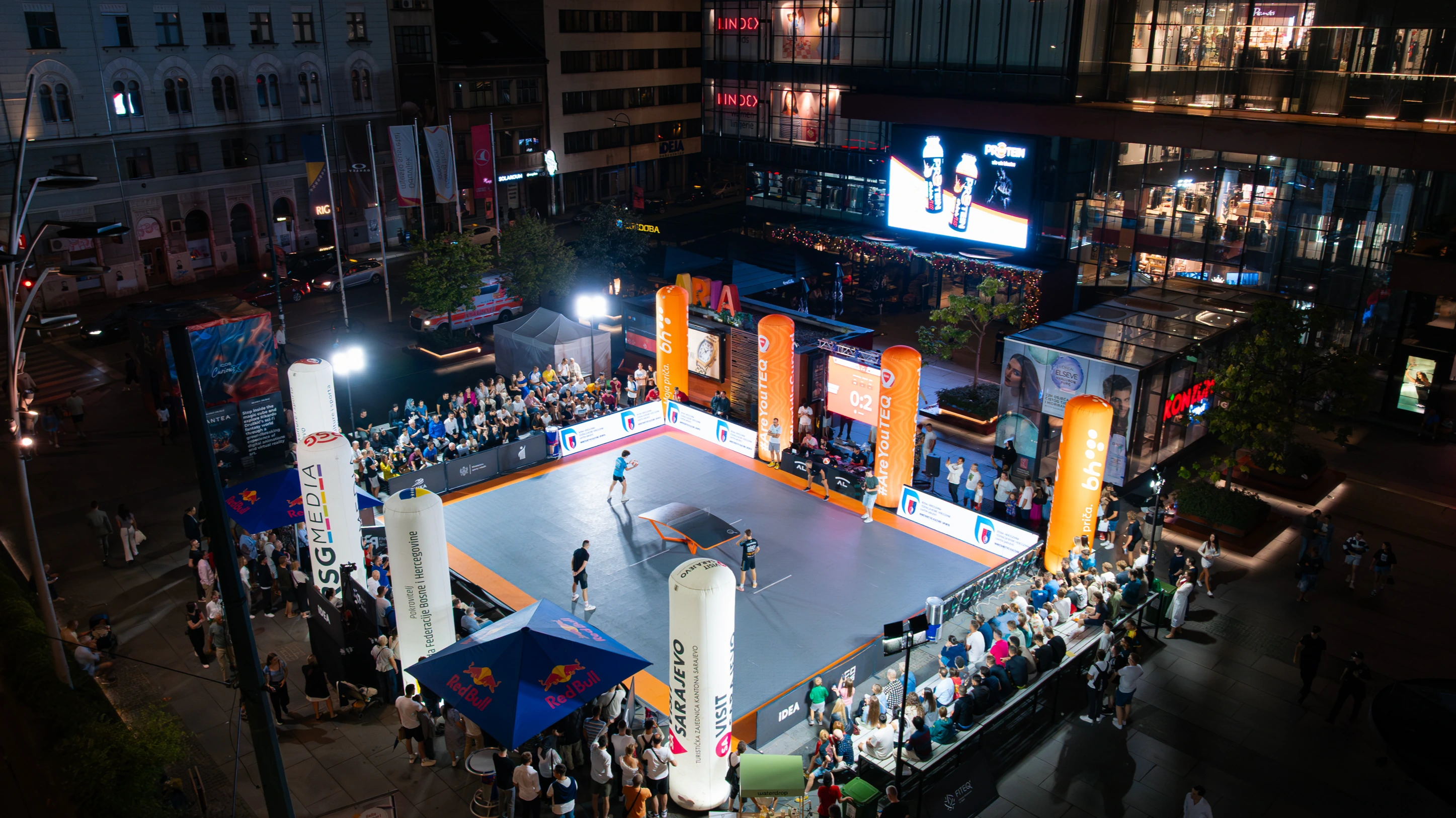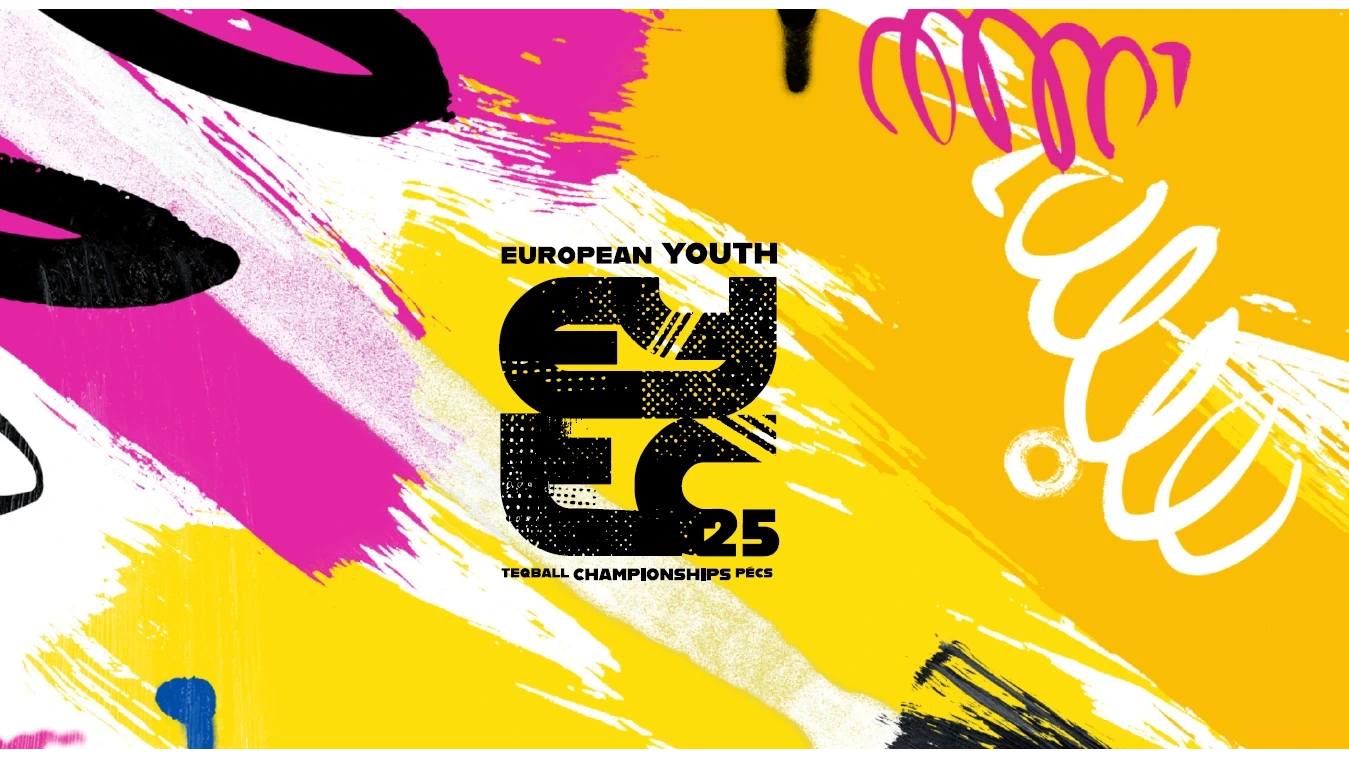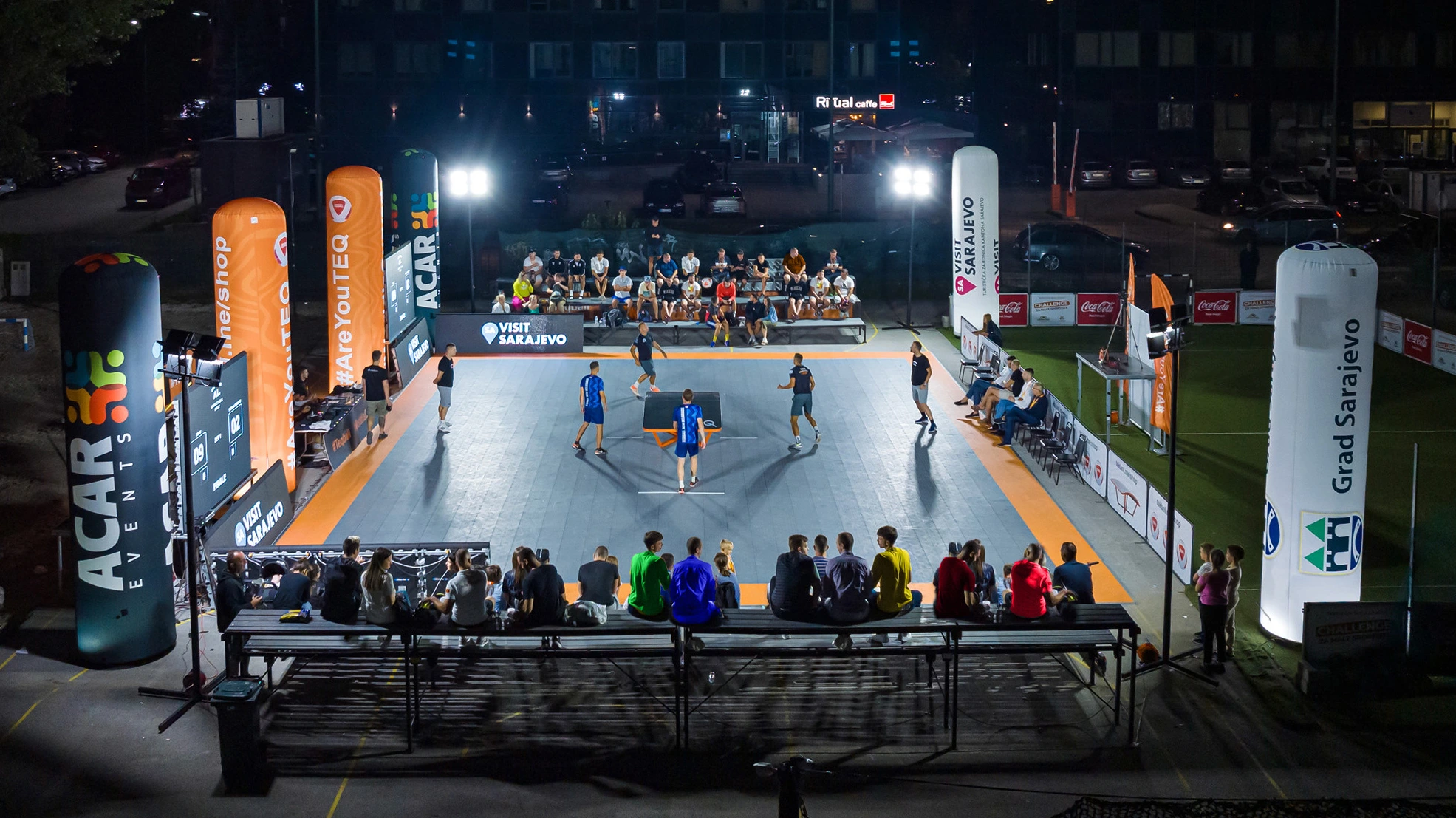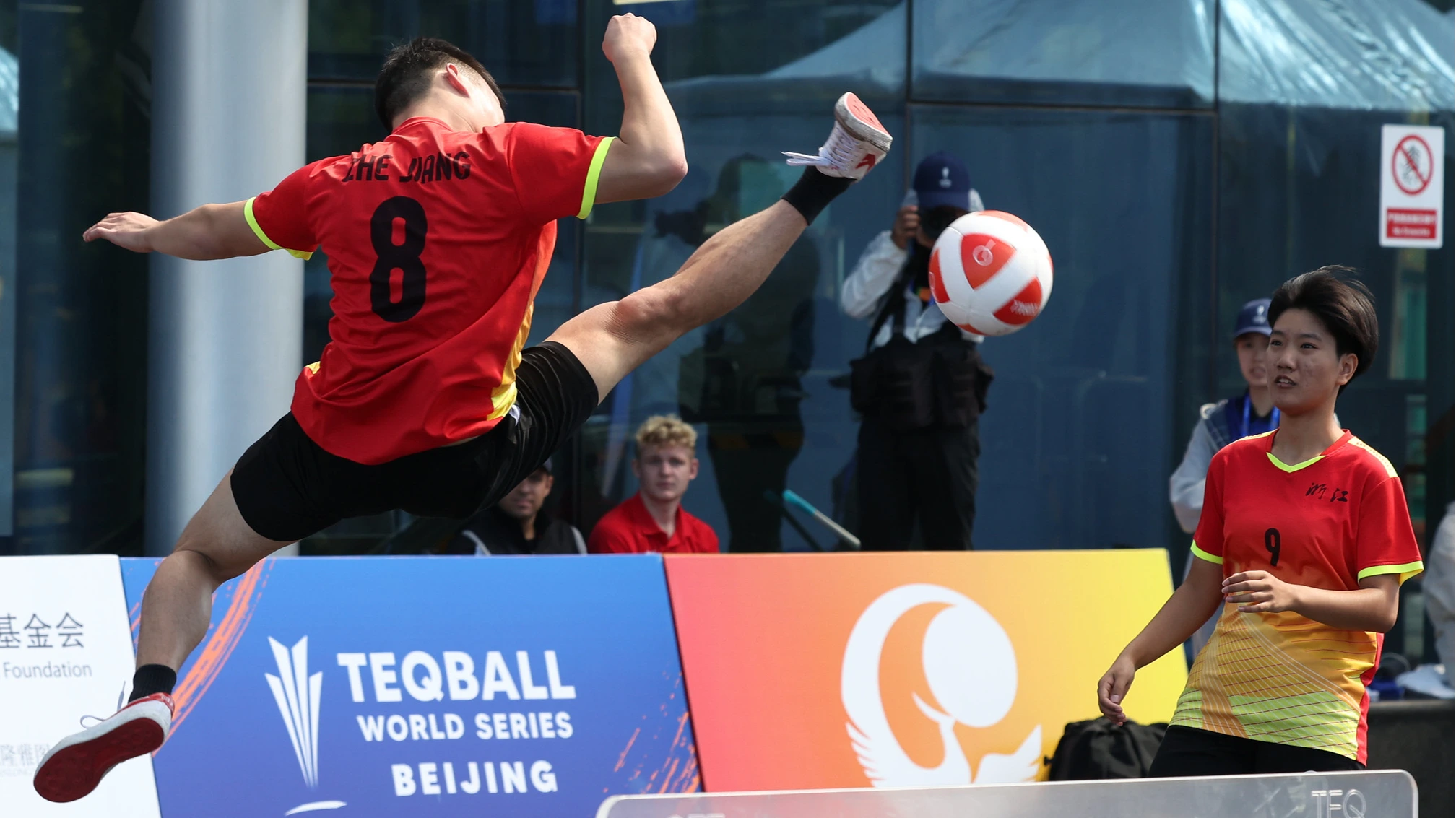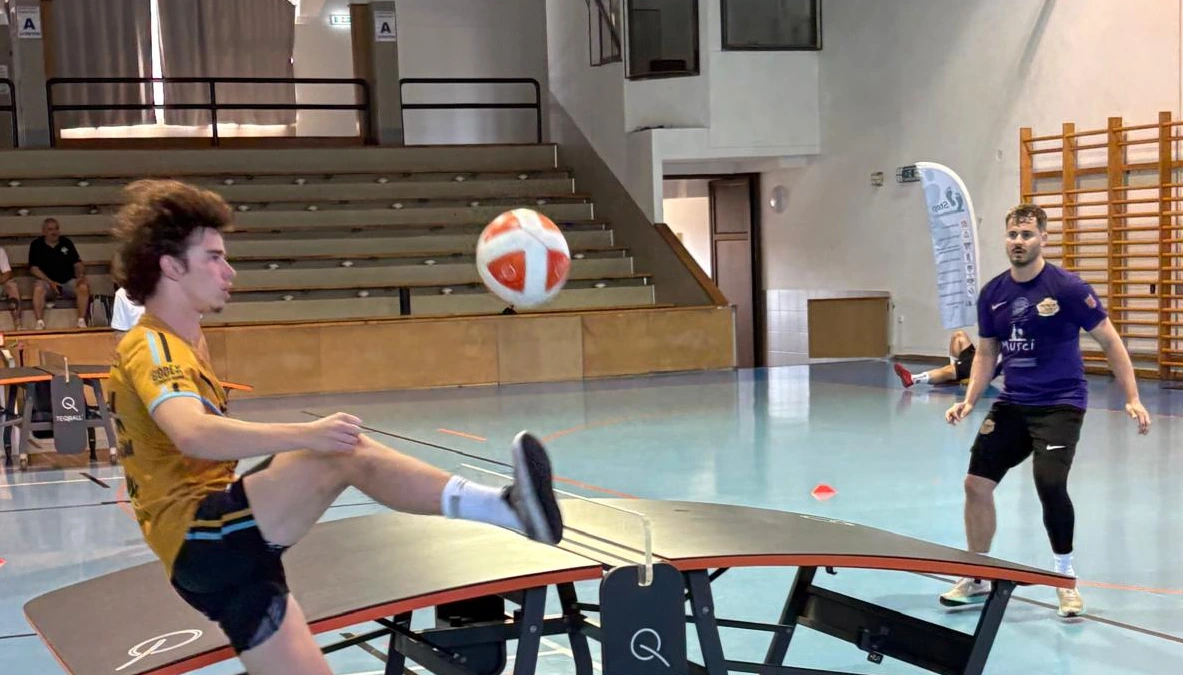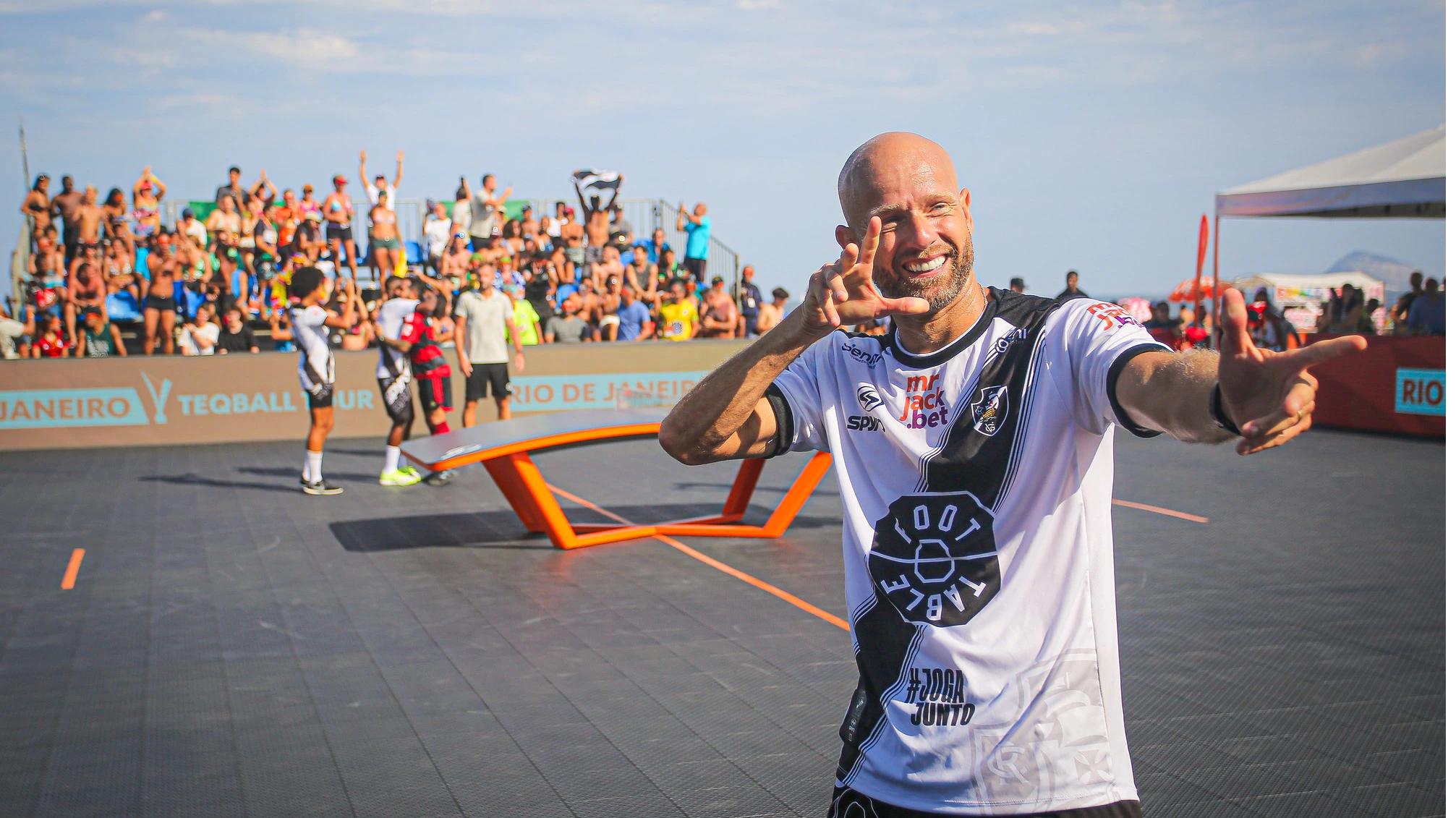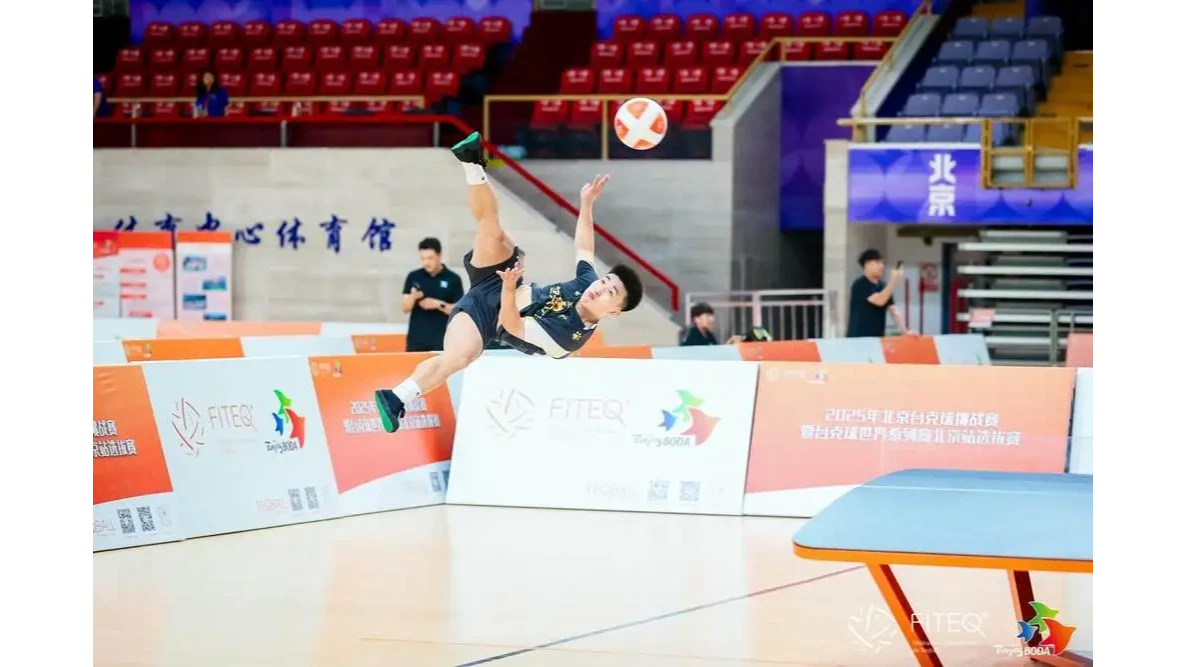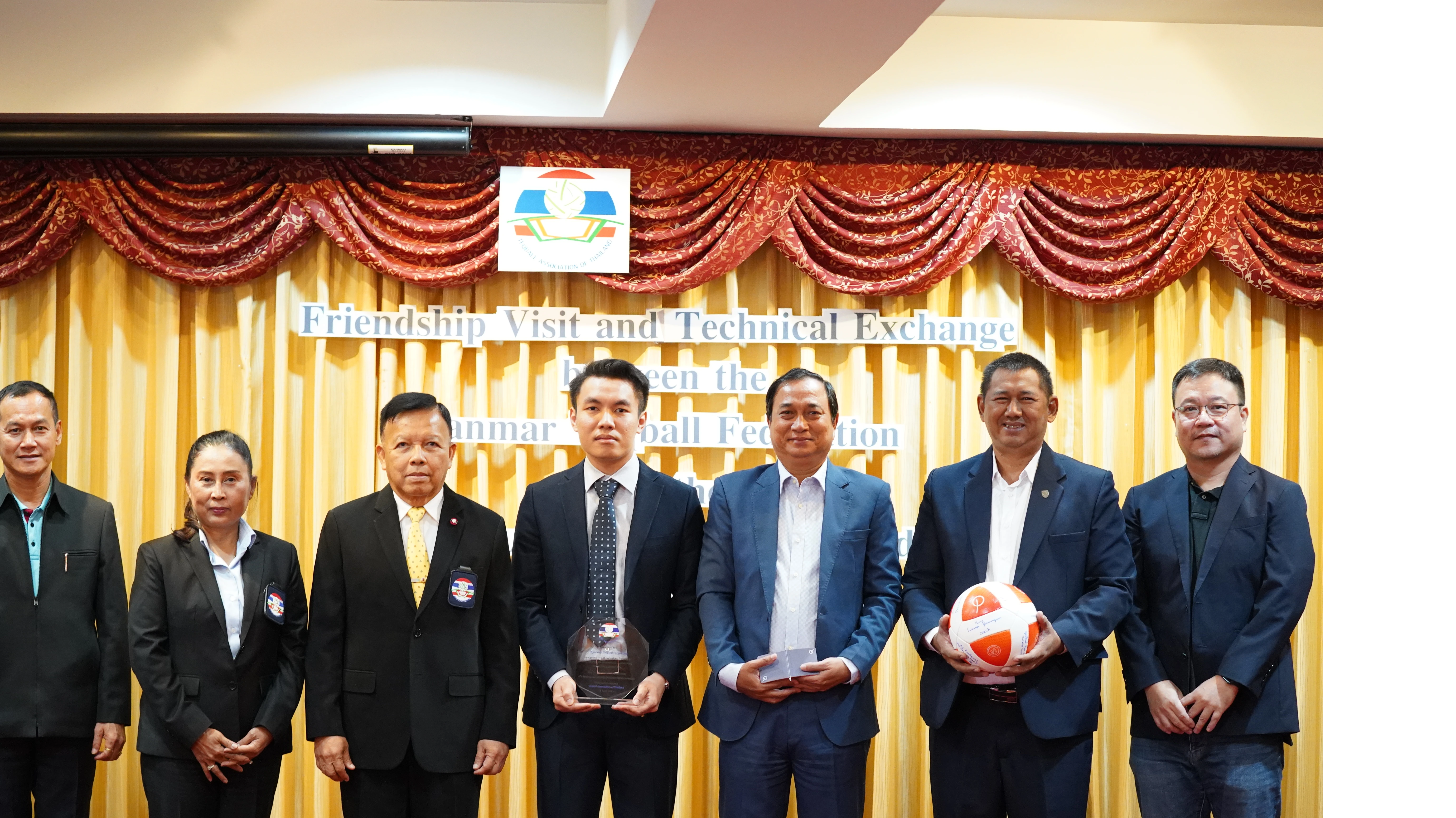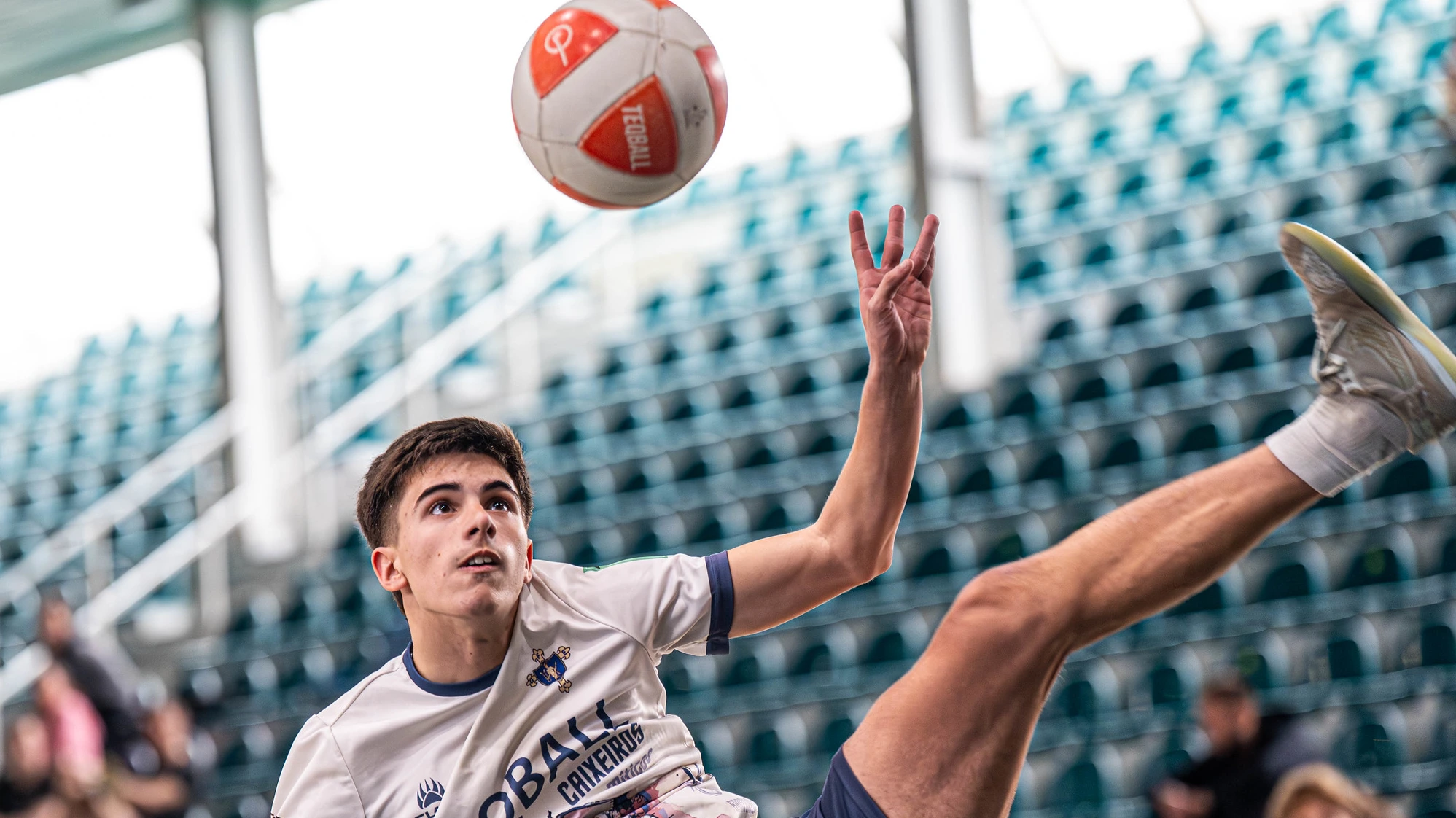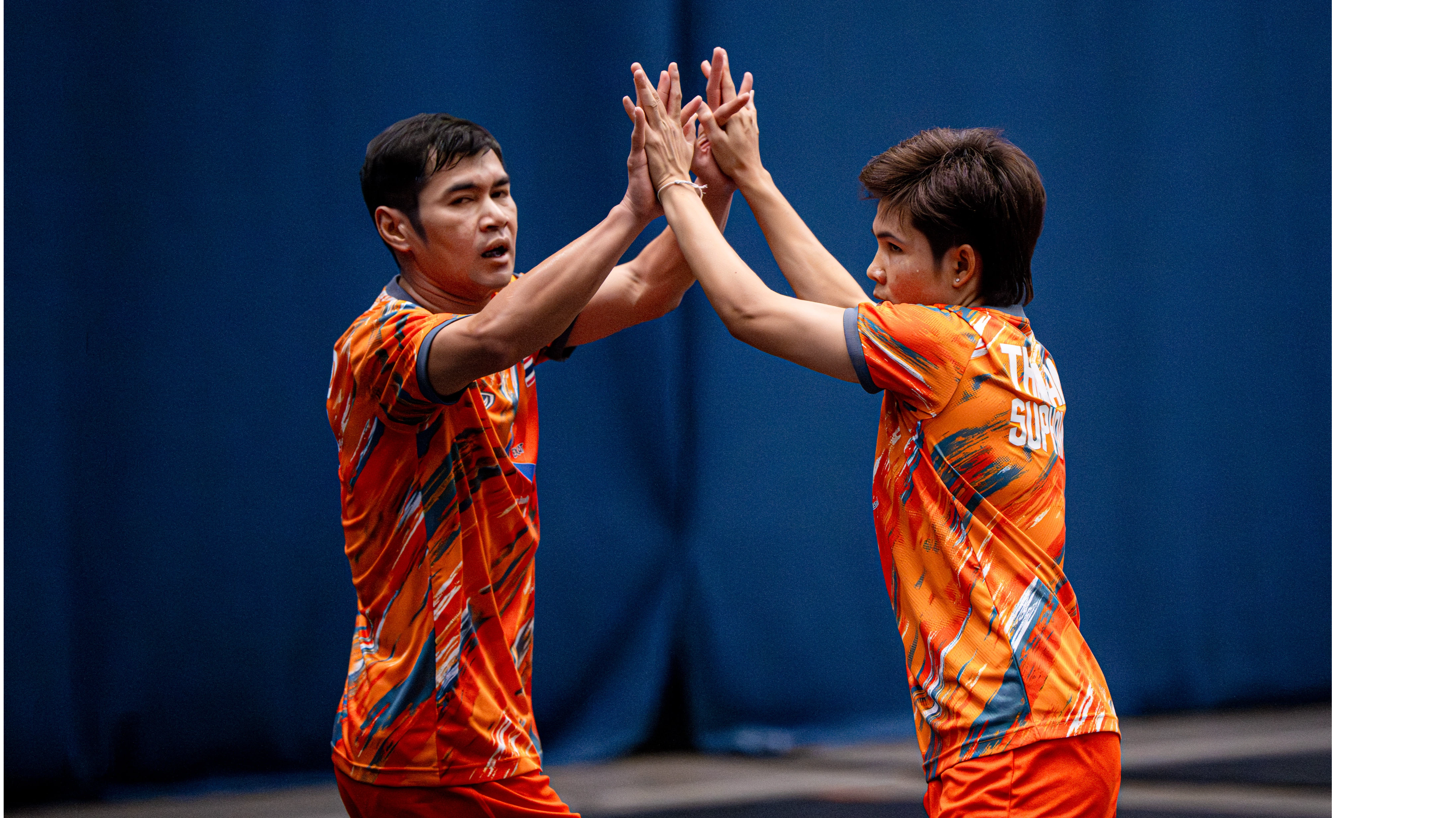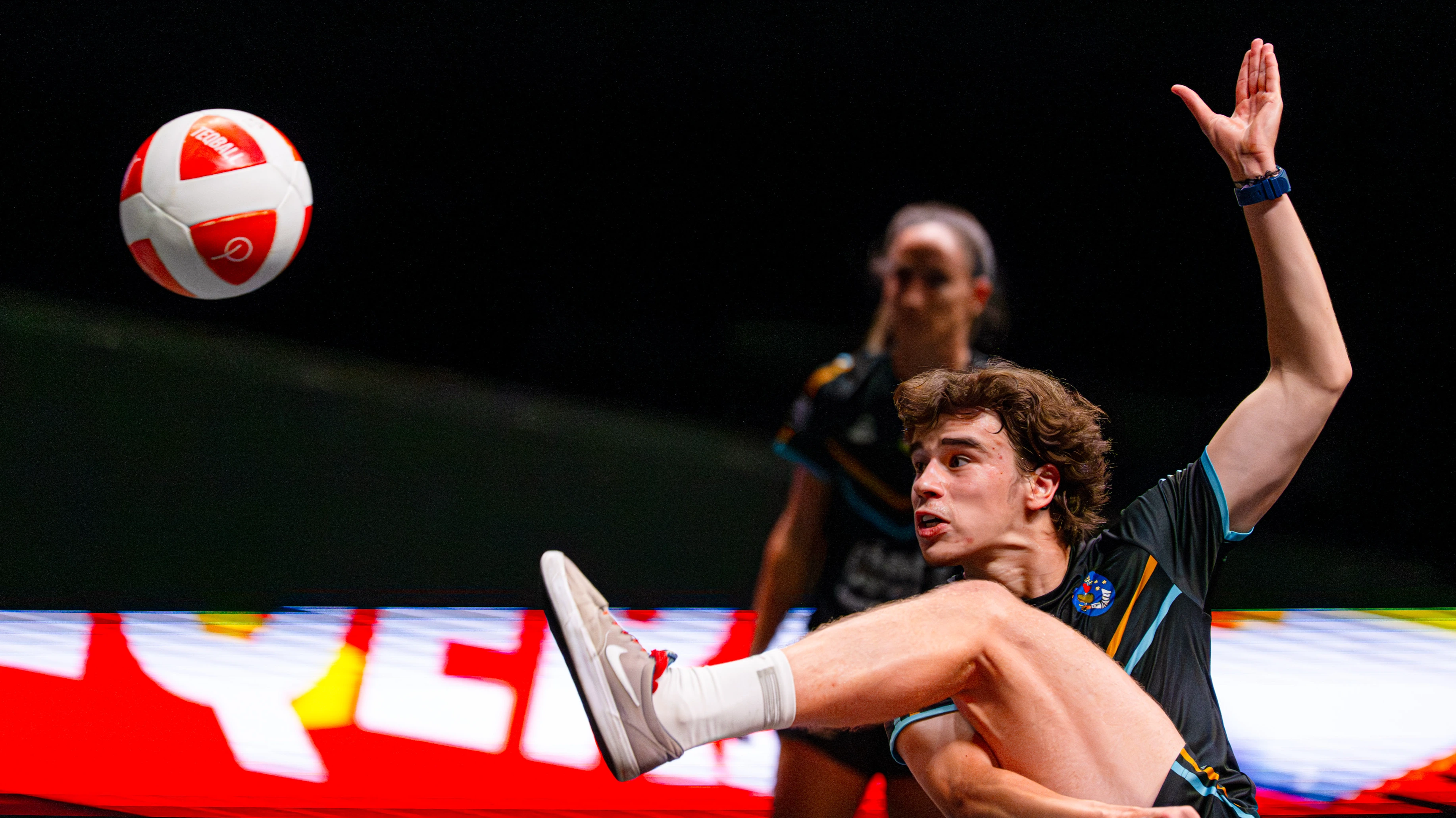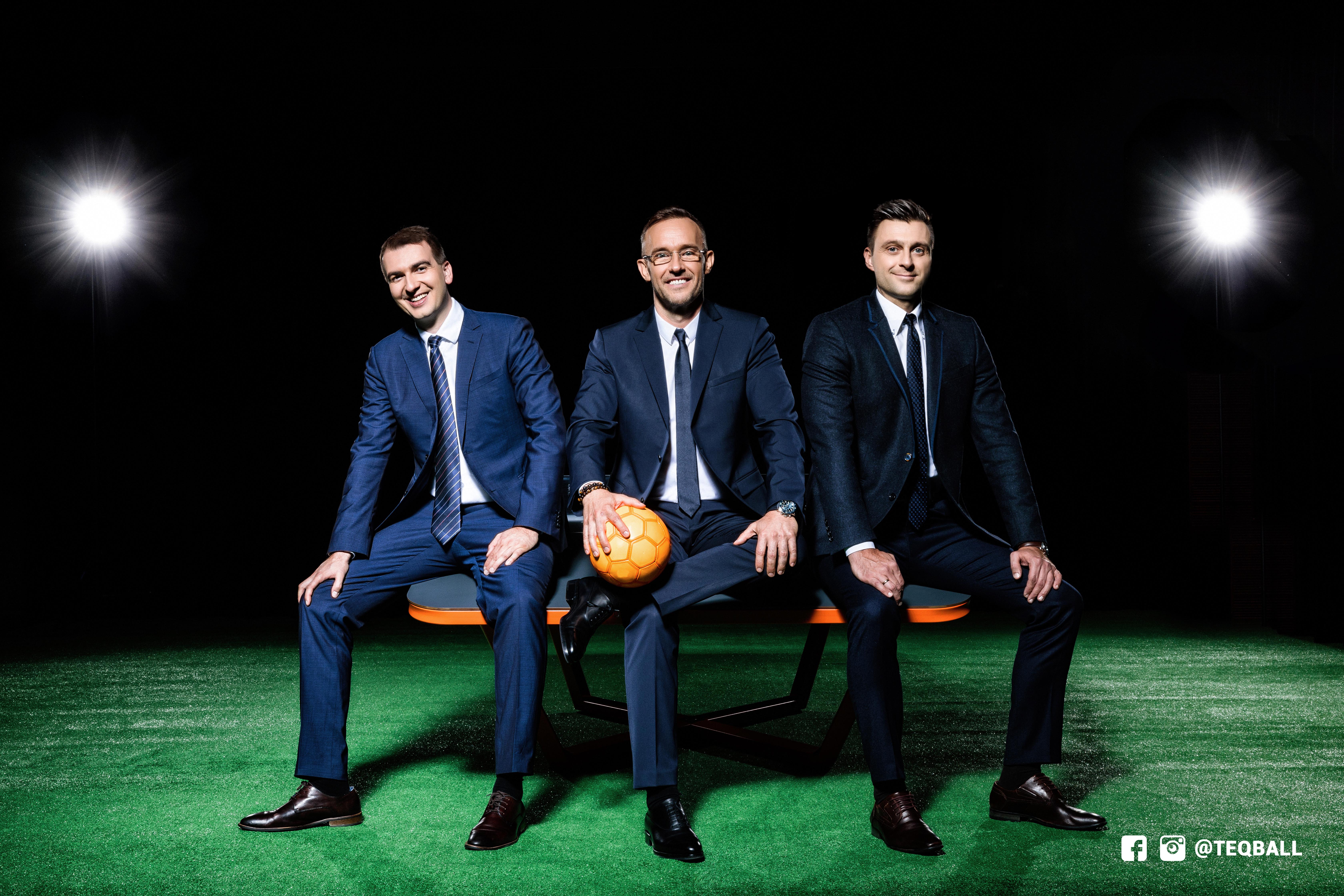
Interview with Gábor Borsányi, Co-founder of Teqball and President of FITEQ
When did the idea of a sport played on a curved table first come into your head?
The idea of Teqball can in fact be traced back to my childhood. I grew up as a kid in Újpest, where we played a lot of football between the block of flats, and when we got bored of playing regular football we went over to the concrete table tennis tables and started playing football tennis on it. But the flat surface wasn’t ideal so the simple idea of bending the table originates from here. By this, the ball would bounce towards the players and it would make the game continuous as the players could play the ball easily.
How much has the Teq table changed compared to the first prototype?
The width, length and inclination of the table did not change, but in the first edition, my co-founder and friend Viktor Huszár and I adjusted the height of the table to match our own height; above 190 cm. This had to be changed later, because the average male height is smaller! Moreover, on the first table, the plexi net was not extending out. It was level with the table, and we were also adjusting the length which led to the change of the height at the edges (short side), too.
How did you create the rules?
Of course, it took a lot of testing to get the right set of rules. As a result, we have seen what rules work and what rules we need to think in more depth about. This is an evolving process. What was important to us from the start was to create an easy-to-understand set of rules and to minimise the luck factor, which means that in our sport always the better player, the better team wins.
How do you see the development of the past 5 years?
Our aim is to make teqball a global movement and this ambition will accompany us to the end of our lives. I think there are a lot of factors that are needed to come together to succeed on our journey to being a global movement. Having the right partners and a cohesive team is vital and we have worked hard to achieve this. In addition, it is important to decide deep inside what it means to be successful. We are satisfied with the past five years, but of course there is always room for improvement, so we never stop moving forward.
How does it feel for you to see an idea becoming a sport?
It is a fantastic feeling to see a sport and the sport equipment that born out of our vision and strenuous work in so many countries. Sometimes I also think we are living in a dream which is an amazing feeling.
What do you think about the development of the sport? Are you satisfied with the players' performance?
It's incredible to see movements we didn't even think about in the past. The quality of the sport of teqball is constantly developing, which provides us with great pleasure. An important achievement for us is that female players are also showing passion for the sport. Of course, this is an evolving process and I am sure both offensive and defensive play will continue to find ways to improve further.
What are the goals of FITEQ in 2020?
Like every year, we have big plans for this year, too. Among many other things, I would like to highlight that the 2020 Asian Beach Games where teqball will be present as a programme sport with three medal events (men’s doubles, women’s doubles and mixed doubles). In the short and long term, it is no question that we would like to help the work of our national federations, and our goal is to integrate as many professional players and club teams as possible into the international teqball community.
When do you think teqball can be an Olympic sport and what do you need to achieve this?
Of course, it is every sport’s dream to be a part of the Olympic Programme. There are a lot of regulations and sports diplomacy requirements that must be met in order for a new sport to be part of the Olympic Programme and we are very respectful of that. We are honoured that the OCA and ANOCA have recognised teqball as an official sport. We are on an exciting journey – the teqball movement – and we hope one day this leads to inclusion in the Olympic Games.
How much time do you have to play on the table during the weekdays?
With the Co-founders, György Gattyán and Viktor Huszár, we are joking if someone plays very well against us, we then change the rules! To be serious, we love playing on the equipment on a weekly basis, as it is an incredibly enjoyable game, not to mention that we can only remain authentic in teqball's life if the founders themselves play regularly.
